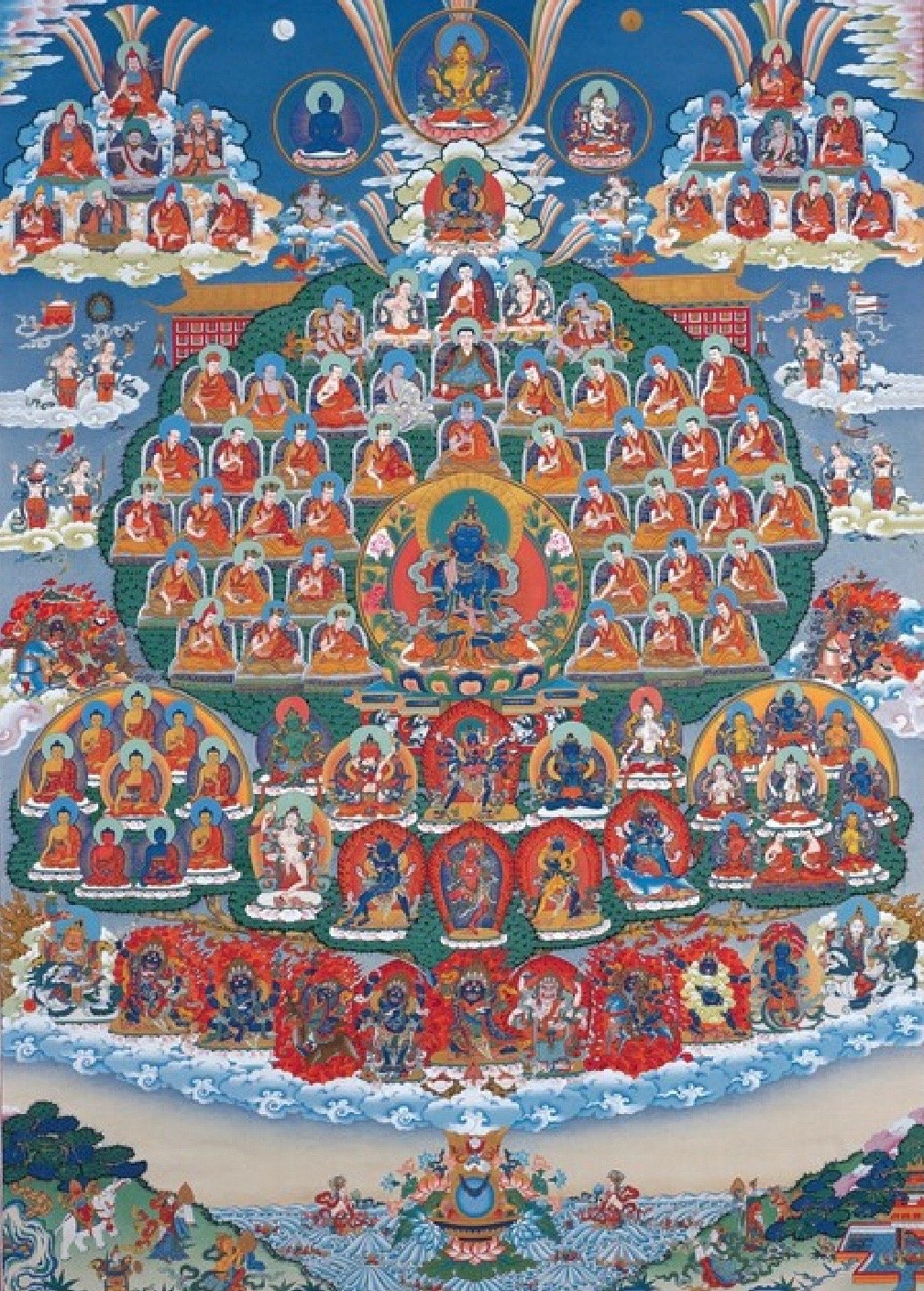Saga Dawa Greetings!
Copyright © 2022 Himalayan Art Resources Inc.
On May 31st we enter the 4th lunar month of the Tibetan Calendar. The 4th lunar month is the time during which we celebrate Saga Dawa. Saga Dawa is the commemoration of Shakyamuni Buddha’s birth, enlightenment, and parinirvana (death). In this year of the Water Tiger, Saga Dawa is celebrated May 31st-June 29th.
Saga (Alpha Librae) is one of the 28 constellations that mark the passage of the moon across the nighttime sky, and it is the constellation associated with the 4th lunar month. Dawa can be translated into English as moon or month. This is the most significant month of the Buddhist calendar and the merit that is accumulated during this period is multiplied 100 thousand times.
In 563 B.C.E., Prince Siddhartha was born to a noble family of the Shakya clan, in the garden grove at Lumbini, in the foothills of the Himalayas in southern Nepal. Before Siddhartha’s conception, his mother, Queen Mayadevi, had a dream in which an exquisite white elephant entered her body, and from the moment of his birth he showed and manifested extraordinary signs. Some traditions celebrate this birth of Shakyamuni Buddha, specifically, on the 7th lunar day of the Saga Dawa (June 6, 2022), while others celebrate it on the 15th.
The pinnacle of this sacred month is the 15th lunar day, the day of the full moon (June 14, 2022). This day is called Saga Dawa Düchen (Düchen means “great date or occasion”). It is known in Pali as vesākha and in Sanskrit as vaiśākha. This is the specific day that marks the commemoration of the Buddha’s birth, his enlightenment and his parinirvanana.
Copyright © 2022 Himalayan Art Resources Inc.
At the age of 35, Prince Siddhartha sat down at the foot of a bodhi tree in Bodhgaya, India, and set the heartfelt intention that he would not rise until he had reached full awakening. After 49 days of resolute practice, during which he courageously and successfully faced all his karmic tendencies, emotional obscurations and cognitive obscurations, he accomplished what he set out to do and proclaimed:
Profound peace, natural simplicity, uncompounded luminosity, I have found the nectar-like Dharma!
He then spent 45 years embodying the teachings and sharing his wisdom. In his 81st year, Shakyamuni Buddha entered parinirvana in a forest grove in Kusinagar while surrounded by 500 disciples. With his last breath, he said to his students:
It is in the nature of all things that take form to dissolve again.
Strive with your whole being to attain liberation.
With Shakyamuni’s example of heroic determination, this month is a good opportunity for us to reconnect with our initial intention to dedicate ourselves to this path of liberation, and to renew our commitment to our practice and our bodhisattva aspiration. Traditionally, it is a time of bringing our gratitude for the 3 Jewels into the foreground: a time of acknowledging our gratitude for our teachers, the sacred teachings, and our spiritual home and community.
During Saga Dawa, all merit accumulated is multiplied 100,000 times. This means that the momentum for awakening gathered through meditation practice, the practice of generosity, and all the paramitas is highly accelerated. It is especially heartening and inspiring to know that our practice, in all its forms, during this time of such suffering and loss is especially potent. May all beings benefit from our heartfelt aspiration to awaken for the benefit of all beings without exception!



